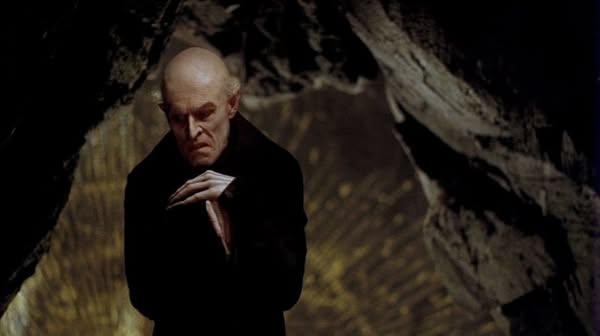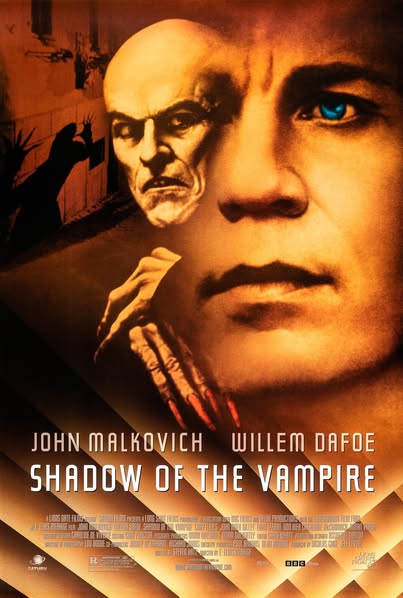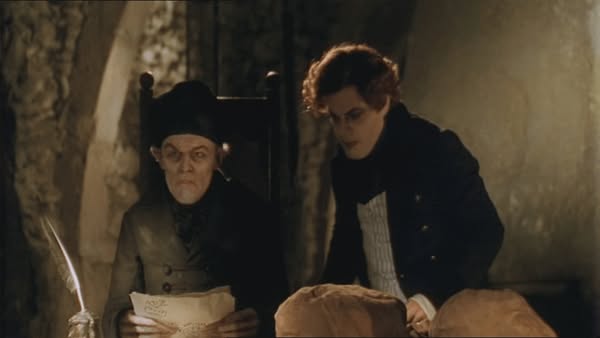Shadow of the Vampire (2000)

“Shadow of the Vampire,” directed by Elias Merhige and released in 2000, is a unique psychological horror film that presents a fictionalized account of the making of F.W. Murnau’s 1922 silent film “Nosferatu.” This intriguing narrative blends elements of horror, dark comedy, and drama, exploring the blurred lines between art and reality.
The film stars John Malkovich as F.W. Murnau, the visionary director of “Nosferatu,” and Willem Dafoe as Max Schreck, the enigmatic actor portraying Count Orlok. The premise posits that Schreck is not merely an actor but an actual vampire, drawing on the mythos surrounding the character and the film itself. Murnau, obsessed with authenticity, is willing to overlook Schreck’s strange behaviors and unsettling presence in pursuit of creating the perfect horror film.

As the production unfolds, the tension escalates. Murnau’s determination to capture the essence of horror leads him to make increasingly dangerous compromises, while Schreck’s true nature poses a constant threat to the cast and crew. The relationship between Murnau and Schreck becomes a central focus, exploring themes of ambition, sacrifice, and the cost of artistic genius.
Willem Dafoe’s portrayal of Max Schreck is particularly noteworthy; he embodies the character with a blend of menace and vulnerability, creating a haunting performance that blurs the line between actor and monster. His physicality and commitment to the role contribute to the film’s unsettling atmosphere.

The cinematography and art direction pay homage to the visual style of early cinema, effectively capturing the aesthetic of silent films while adding a modern twist. The film’s score complements the eerie tone, enhancing the overall sense of dread and anticipation.
“Shadow of the Vampire” also delves into the themes of obsession and the nature of creativity. Murnau’s relentless pursuit of his vision reflects the darker side of artistic ambition, revealing how it can consume individuals and lead to moral ambiguity. The film provocatively questions the ethics of art and the sacrifices made in its name.

The film received critical acclaim, particularly for Dafoe’s performance, which earned him an Academy Award nomination for Best Supporting Actor. “Shadow of the Vampire” stands out as a clever and thought-provoking exploration of the intersection between horror filmmaking and the supernatural, making it a fascinating watch for both horror enthusiasts and cinephiles alike.
In summary, “Shadow of the Vampire” is a compelling blend of history and fiction that offers a unique perspective on the creation of one of cinema’s most iconic horror films. Its exploration of the darker aspects of artistic ambition and the nature of monstrosity continues to resonate, solidifying its place as a noteworthy entry in the genre.











